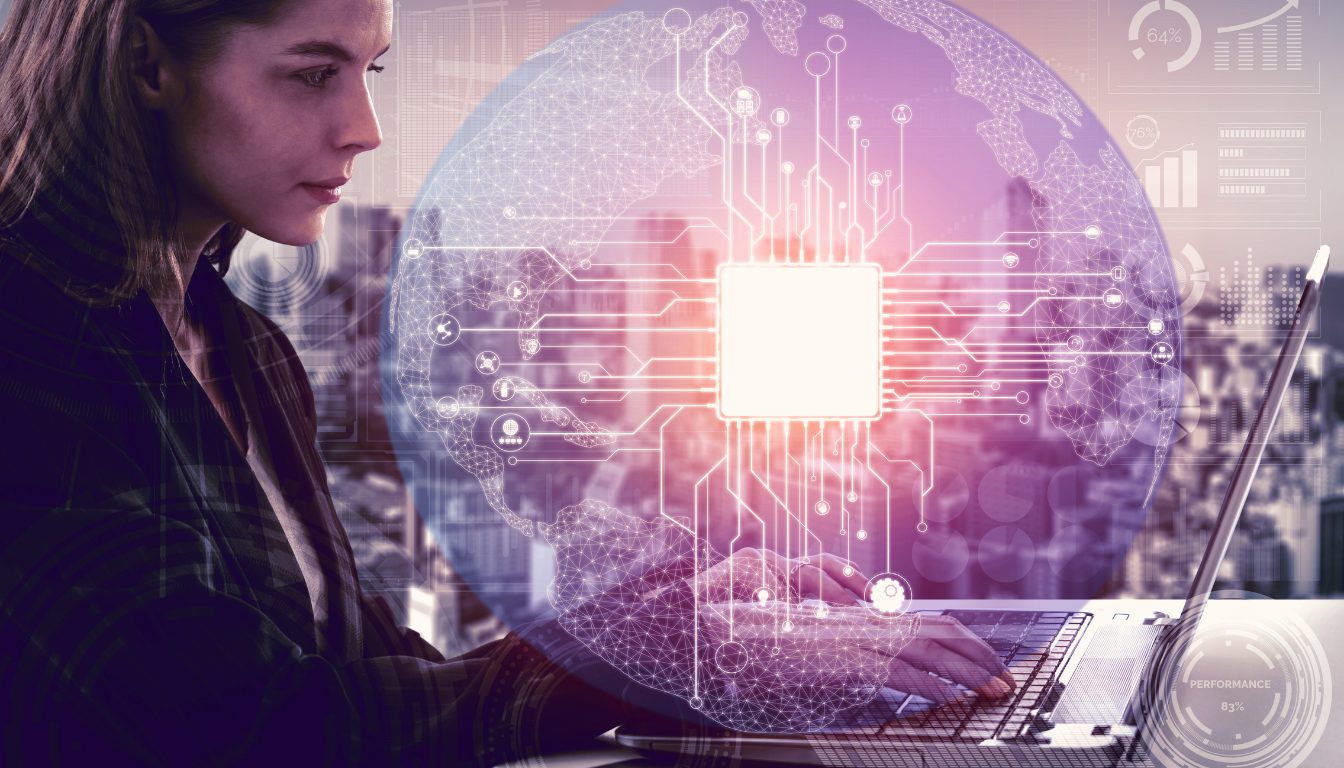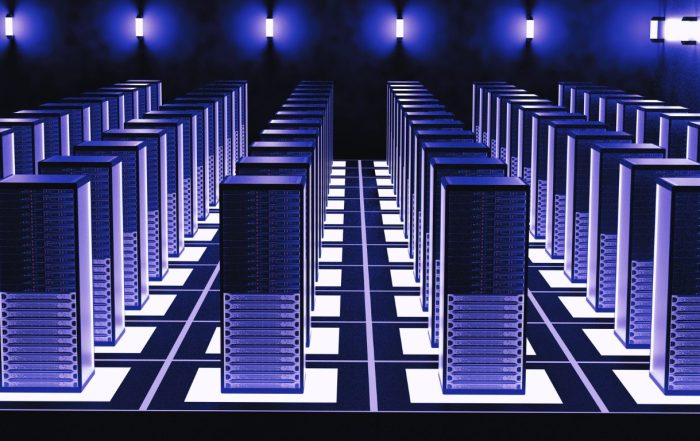
Harnessing AI and Machine Learning for Personalized Learning Experiences
Key Takeaways
- AI and Machine Learning (ML) algorithms enable the creation of customized learning paths for each student, enhancing engagement and challenge.
- AI-powered Content Delivery Network (CDN) technology ensures seamless delivery of educational content, adapting to traffic patterns and minimizing latency for a global reach.
- Adaptive learning algorithms, fueled by AI, personalize learning experiences by adjusting content based on learner performance and predicting future learning needs.
- AI and CDNs are poised to revolutionize education by enhancing personalized learning experiences and making high-quality education more accessible worldwide.
Artificial Intelligence (AI) and Machine Learning (ML) are transforming the educational landscape, enabling highly personalized learning experiences. These cutting-edge technologies assess individual learning patterns, preferences, and performance to tailor educational content, ensuring the material is both engaging and challenging. Furthermore, AI-powered Content Delivery Networks (CDNs) are revolutionizing the way educational content is delivered, adapting to traffic patterns to ensure a seamless, low-latency experience for learners worldwide. With the ability to personalize learning experiences and predict future learning needs, adaptive learning algorithms are set to redefine how education is delivered and consumed. Let’s delve into these advancements and explore how AI can be leveraged to enhance personalized learning experiences.
Leveraging AI to Enhance Personalized Learning Experiences
The integration of AI and Machine Learning in education has opened up new avenues for personalized learning. By analyzing learner data, these technologies can create a customized learning path for each student. This approach not only ensures that the material is engaging and challenging but also adapts to the individual learning patterns, preferences, and performance of each student.
One of the key applications of AI in education is the optimization of real-time content delivery. AI-powered CDNs adapt to traffic patterns and ensure seamless delivery of educational content, no matter where the learners are located. This technology minimizes latency, enhances the quality of live learning streams, and, in turn, makes education more accessible globally.
Another transformative aspect of AI in education is the development of adaptive learning algorithms. These algorithms not only adapt content based on learner performance but also predict future learning needs. By analyzing vast amounts of data, these algorithms can forecast areas where students may struggle and adjust the curriculum accordingly. The result is a more personalized learning experience that is tailored to the unique needs and abilities of each student.
Overall, the integration of AI and Machine Learning in education is poised to revolutionize the way we learn, providing learners with a more personalized, engaging, and effective learning experience.
Enhancing Engagement and Satisfaction through AI-Driven Content Personalization
As we are delving deeper into the era of digital learning, the need for personalized and engaging content has never been more paramount. AI and advanced algorithms come into play here, analyzing user interaction with content, and enabling the delivery of personalized learning materials. This methodology doesn’t just add a personal touch — it significantly improves engagement by presenting learners with content that aligns with their interests and educational needs.
But what about security? As we entrust more of our educational content and personal data to online platforms, the need for robust security mechanisms becomes all the more pressing. AI-powered CDNs rise to the challenge, implementing real-time threat detection and automated mitigation. This ensures a secure learning environment, safeguarding educational content and user data against cyber threats, and maintaining the much-needed trust and reliability in digital learning platforms.
AI also brings about a notable improvement in content relevance and CDN performance. It enhances content caching strategies, ensuring that the most relevant and requested educational materials are readily available. This isn’t just about making sure that popular content is easily accessible — it’s about minimizing buffering times and accelerating content delivery for a smoother and more efficient learning experience. In a world where every second counts, AI ensures that learners spend less time waiting and more time learning.
As AI continues to evolve and integrate further into our educational systems, it’s clear that the future of learning lies in personalization. AI-driven content personalization is not just a buzzword — it’s a revolutionary approach that’s set to reshape the landscape of education, bringing about enhanced engagement, satisfaction, and learning outcomes.
Revolutionizing Education with AI-Enhanced CDN Architectures
As we stride further into the digital age, the fusion of AI and CDN architectures is becoming increasingly prevalent in the realm of education. AI algorithms can be seamlessly embedded within CDN infrastructures, dynamically managing and optimizing the distribution of educational resources. This integration goes beyond just storing and delivering content — it’s about intelligently adjusting server loads, routing content through the most efficient paths, reducing latency, and improving access speed. This translates into a streamlined and efficient learning experience, with content reaching the learner faster and more reliably.
At the heart of this revolution lies edge computing — a critical aspect of CDN architectures that brings content closer to the end-user. Edge computing processes data at the edge of the network, which significantly decreases latency and enhances the learning experience for students worldwide. Imagine a classroom without walls, where learning resources are always within reach, and geographical barriers are a thing of the past. That’s the power of edge computing.
But what about scalability? With the ever-growing demand for educational content, scalability becomes a critical factor. AI-driven solutions shine in this aspect, predicting demand spikes for educational content and allowing CDNs to automatically scale resources. This proactive approach prevents service disruptions during critical learning periods, ensuring a smooth and uninterrupted learning experience. In this dynamic digital landscape, AI ensures that your educational platform stays resilient and reliable, ready to meet the demands of learners anytime, anywhere.
The integration of AI in CDN architectures is revolutionizing education, ushering in an era of personalized, efficient, and reliable learning experiences. As AI continues to evolve and integrate further into our educational systems, it’s clear that this is more than just a trend — it’s the future of education.
Optimizing Learning Outcomes through Data-Driven Insights
As we dive deeper into the digital age, the role of AI in understanding and enhancing educational experiences has become crucial. AI’s ability to collect, analyze, and interpret data on how students interact with online learning platforms provides educators with unparalleled insights into learning behaviors, preferences, and outcomes. This information helps refine course materials and teaching strategies, allowing for the personalization of educational content to match individual learning paths.
Predictive analytics play a pivotal role in this process. They allow educators to forecast student performance and tailor learning experiences accordingly. This proactive approach goes beyond just delivering content — it’s about identifying at-risk students early, providing them with the additional support they need to succeed. This way, every student gets a fair chance at success, and no one is left behind in the journey of learning.
AI and ML also foster continuous improvement through the creation of real-time feedback mechanisms for students and educators. Immediate insights into learning progress can inform adjustments to teaching methods and content delivery, ensuring that educational experiences remain relevant and effective. Imagine a classroom where educators can instantly adapt teaching strategies based on real-time student feedback — that’s the power of AI and ML in education.
Data-driven insights are not just about improving learning outcomes. They’re about transforming the educational landscape, making it more personalized, efficient, and above all, effective. As the fusion of AI, ML, and CDN architectures continues to evolve, we’re witnessing the dawn of a new era in education — an era defined by data-driven insights and personalized learning experiences.
The Future of Education: AI and ML as Catalysts for Change
With AI and ML technologies rapidly integrating into educational systems, we are on the brink of a revolution. Imagine a future where each student receives a highly personalized and adaptive learning experience, tailored to their unique needs and learning styles. This isn’t a distant reality, but the direction in which we are swiftly moving. The impact of AI and ML on the educational landscape is a profound shift towards customization and personalization, ensuring that each student gets the attention they need to thrive.
More than just personalization, AI has the potential to democratize education. With the aid of AI-enhanced CDNs, high-quality learning resources can be made accessible to students everywhere, regardless of geographical or socioeconomic barriers. This means that a student in a remote village can have access to the same quality of education as a student in a bustling city. It’s the true democratization of education, making learning a universal right, not a privilege.
As we move towards this future, it’s essential to address the elephant in the room — data privacy and ethical considerations. With AI and ML playing increasingly significant roles in education, we must prioritize the safety and privacy of student information. Robust ethical frameworks and data protection measures are not just optional but a necessity to safeguard student information and ensure equitable learning opportunities. As we revolutionize education, we must remember that the privacy of students is paramount.
AI and ML are not just tools. They are catalysts for change, transforming the future of education. They are breaking down barriers, making education more accessible, and providing highly personalized learning experiences. But with great power comes great responsibility. As we integrate AI and ML technologies into our educational systems, we must also uphold the highest standards of data privacy and ethics.
So, what does the future hold for education? How will AI and ML shape the learning experiences of tomorrow? These questions challenge us to think beyond our current confines and envision a future where education is a right, not a privilege, and where every student gets a uniquely tailored learning experience.
About CacheFly
Beat your competition with faster content delivery, anywhere in the world! CacheFly provides reliable CDN solutions, fully tailored to your business.
Want to talk further about our services? We promise, we’re human. Reach us here.
Product Updates
Explore our latest updates and enhancements for an unmatched CDN experience.
Book a Demo
Discover the CacheFly difference in a brief discussion, getting answers quickly, while also reviewing customization needs and special service requests.
Free Developer Account
Unlock CacheFly’s unparalleled performance, security, and scalability by signing up for a free all-access developer account today.
CacheFly in the News
Learn About
Work at CacheFly
We’re positioned to scale and want to work with people who are excited about making the internet run faster and reach farther. Ready for your next big adventure?




